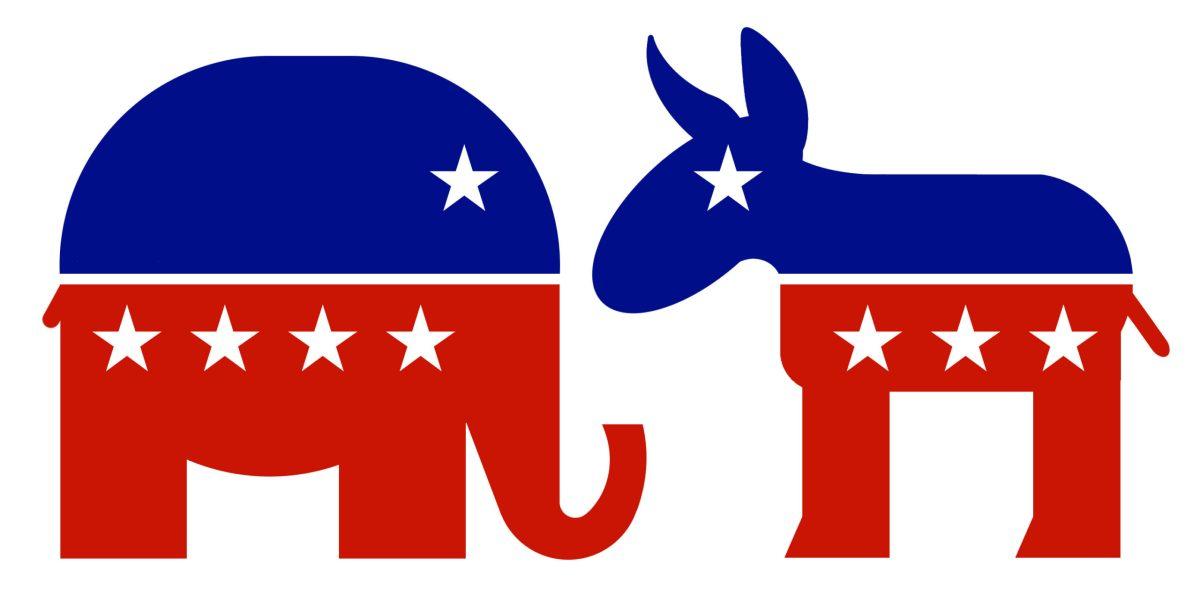_Brandon Bartlett is a freshman political science major at MU. He is an opinions columnist who writes about politics for The Maneater._
Politics has centered around conflict in the U.S. throughout the country’s history. Two of the country’s Founding Fathers, Thomas Jefferson and John Adams, were very good friends during the American Revolution but became great rivals when they started to compete politically and ran against one another to be president. In the mid 1860s, the U.S. fought the Civil War over slavery. This resulted in the death of about 620,000 people throughout the war and the assassination of President Abraham Lincoln by Confederate sympathizer John Wilkes Booth.
In 1963, another U.S. president, John F. Kennedy, was assassinated. Kennedy was an anti-communist who made many efforts during his presidency to stifle communism’s spread throughout the world. His assassin, Lee Harvey Oswald, declared himself a communist when he was applying for citizenship in Russia. The FBI also had information that he had attended meetings with known communists. Just a few years after Kennedy’s death, in 1968, Martin Luther King Jr. was assassinated by James Earl Ray. It seems clear that both of these assassinations were politically motivated acts.
Politics has always been a very much debated subject in the U.S. Hopefully it will always be, but we must learn to handle our reactions to differing political views better. This does not only apply to the extreme cases such as those listed above, but also the ones we experience in everyday life. Since the 2016 election, it seems politics have become extremely divisive. We must change this because we need to be able to have conversations that include a free flow of ideas instead of slandering opponents for thinking differently.
First and foremost, we need to expose ourselves to ideas we disagree with. It is so easy to just listen to people on the news and surround ourselves with like-minded people. However, that isn’t helping us decide what is best for the country. You are never shown an opposing point of view with a different way of attempting to solve a problem. I’m not saying that we should only listen to points of view with which we disagree or even that we have to agree or find middle ground with the other point of view, but there needs to be a conversation. If not, how do we even know what we think when we only know one side of an argument?
Secondly, when we have a conversation about an issue, it shouldn’t be dictated by emotions. An argument filled with statements that include “I feel like,” “to me” or “in my opinion” is not an argument but a statement of how we feel about something. If we actually want to figure out what is the best solution to a problem, we need to look at it from a factual basis.
Also, if your only response to an opposing argument is calling someone a name rather than giving them a fact that proves them wrong, you might as well just admit they are right. For example, someone might say, “I think we need to build a border wall to stifle illegal immigration,” and all you have to say is, “That’s because you’re a racist.” If someone says, “We should have free college,” and all you have to say is, “You’re just entitled and looking for a handout,” then you have already lost the argument, and you aren’t helping to solve the problem. It should be assumed that anyone who does this is doing so because they don’t have a factual point to make and just don’t want to concede with the possibility of being wrong or not knowing what they are talking about.
Finally, we need to start judging people less by the political party they ascribe to and more by their ideas and their character. George Washington once said, “[political parties] may now and then answer popular ends, they are likely in the course of time and things, to become potent engines, by which cunning, ambitious, and unprincipled men will be enabled to subvert the power of the people and to usurp for themselves the reins of government, destroying afterwards the very engines which have lifted them to unjust dominion.” Washington’s insightful statement means political parties are useful for identifying those who we mainly agree with and a few other things, but in the end they will be more often used to gain power by people who don’t actually care about the principles of the political party.
I have supported President Donald Trump throughout his presidency thus far because he has governed according to the conservative ideals he claimed he would. I have, however, lost a lot of my faith in him as the current leader of the Republican Party when he recently supported ideas such as barring people under 21 from purchasing firearms, limiting the free market by imposing tariffs and subjecting drug dealers to the death penalty. If we only judge people by their political party, then we will end up agreeing with people we would not have otherwise and we won’t even begin to think that those who think differently might have some good ideas. We must work through the problems our country faces as a collective group rather than as two opposing forces. A few years prior to the Civil War, Abraham Lincoln said, “a house divided against itself cannot stand.”














